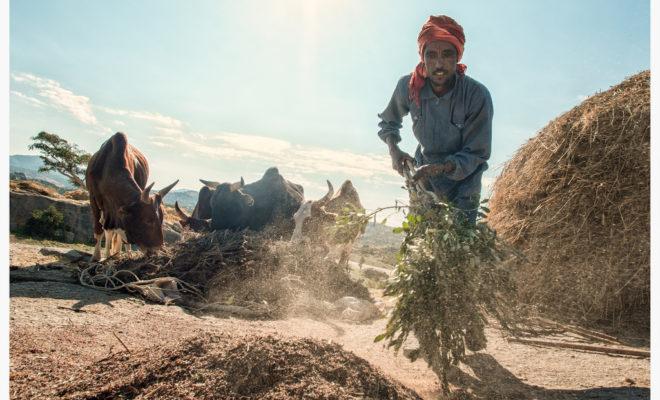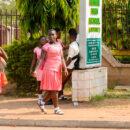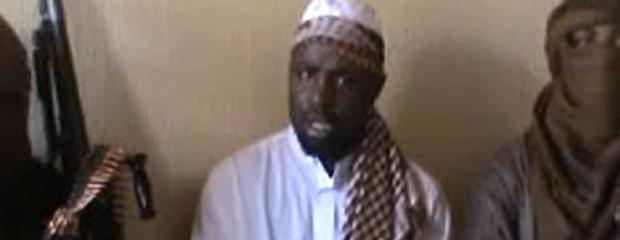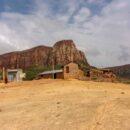Why sanctions on Eritrea are being lifted and what it means

There are three key reasons the UN is removing sanctions on Eritrea.

Sanctions are being lifted, but Eritrea’s government faces many more problems. Credit: Andrea Moroni.
The United Nations Security Council is about to lift an arms embargo and targeted sanctions against Eritrea. UN Security Council resolution 1907, which was passed in 2009, noted that the Eritrean government was backing al-Shabaab militants in Somalia as well as other movements attempting to undermine the Ethiopian state.
The sanctions were strengthened over the years, particularly following Eritrea’s refusal to resolve its border dispute with Djibouti in 2011.
The Eritrean government has routinely denied allegations that it armed these groups. To bolster its case it has pointed to the assessment of long-time ally, former US Assistant Secretary of State for African Affairs, Herman Cohen, who declared that: “All accusations against Eritrea regarding alleged assistance to the Islamist terrorist group Al-Shabaab in Somalia have never been substantiated.”
The Security Council established an expert monitoring group to report on the evidence. Over the years it has produced extensive reports, running to hundreds of pages. These gave the council plenty of reasons to ratchet up its isolation of Eritrea.
Why sanctions were imposed
The monitoring group’s 2011 report was particularly important in presenting the case of Eritrean involvement in Somalia and its backing for al-Shabaab.
The experts obtained what the monitors described as: “firm evidence of Eritrean support for armed opposition groups throughout the region, including Djibouti, Ethiopia, Somalia and the Sudan.”
The monitors said that Eritrea acknowledges relationships with Somali armed groups but characterises them as political or humanitarian. It said, however, that: “Evidence and testimony…including records of financial payments, interviews with eyewitnesses and data relating to maritime and aviation movements, all indicate that Eritrean support for Somali armed opposition groups is not limited to the political or humanitarian dimensions.”
The monitors’ description of training facilities was said to be based largely, but not exclusively, on interviews with more than a hundred former members of six armed opposition groups. These were: al-Shabaab; Hisb’ul Islam/Somali Islamic Front; Hisb’ul Islam / ARS Asmara; Ogaden National Liberation Front; Oromo Liberation Front; and Front Pour le Restauration de la Démocratie.
In an appendix, the experts provided details that backed their conclusions. These included photographs of the groups undergoing training and details of a planned attack by the Oromo Liberation Front on the African Union Summit in 2011.
What did sanctions do?
The sanctions were always limited in their scope. They sought to halt weapons supplies and impede key government officials’ travel plans and economic interests.
Eritrea complained that the sanctions resulted in real harm to its economic interests. In reality, however, the impact was weak. Eritrea managed to use its network of contacts among the diaspora around the world to evade most of their effects.
They were nevertheless an irritant, suggesting as they did that Eritrea was a pariah state. This, together with the government’s record of human rights abuses, resulted in scathing findings by the UN Commission on Human Rights.
Why lift the Eritrea sanctions
So what changed? There are three reasons for the ending of sanctions.
Firstly, the UN accepted some years ago that there is no longer evidence of Eritrean support for al-Shabaab.
Secondly, Eritrea has broken out of international isolation. It is now a key ally of Saudi Arabia and the UAE in their war in Yemen. Eritrea provides bases from which both operate. Europe, too, has embraced the Eritrean government. This is an attempt to halt the flow of Eritrean refugees across the Mediterranean and into Italy.
Thirdly, and most importantly, there has been a reconciliation between the formerly warring parties in the Horn of Africa. The breakthrough came from an initiative by Ethiopia’s Prime Minister Abiy Ahmed, who ended hostilities with his neighbour.
His visit to the Eritrean capital, Asmara, in June received a huge popular welcome. This was followed by visits by Eritrea’s President Isaias Afwerki to Addis Ababa, and finally to a tripartite meeting between the leaders of Eritrea, Ethiopia and Somalia.
In the past Somalia and Ethiopia were – along with Djibouti – the main proponents of sanctions against Eritrea. Now they’ve reconciled, international support for UN sanctions has evaporated.
What’s next?
The Eritrean government is likely to celebrate the lifting of sanctions as a major achievement. But their problems will continue.
Unlike neighbouring Ethiopia, the Eritrean government has not introduced a programme of democratic reforms or improved its human rights. The opening of the border with Ethiopia has resulted in thousands of Eritreans streaming out of the country. Up to 500 are crossing daily into Ethiopia.
[Eritrea: Why change abroad doesn’t mean change at home]
[Eritrea: History aside, what will peace mean for my loved ones?]
Nor will all pressure on the Eritrean government end. The US continues to list Eritrea as among the worst states for religious persecution. As a result, Washington will continue to deny visas to a range of senior Eritrean government officials. Other nations, such as the Netherlands, may also maintain a range of measures.
The lifting of sanctions after nearly a decade marks another notable shift in the changing dynamics in the Horn. However, in the long run, it will be the response of the Eritrean public that will determine just how significant a moment this will be for President Afwerki and his government.
This article is republished from The Conversation under a Creative Commons license. Read the original article.






